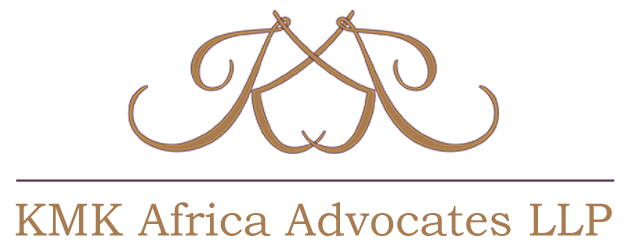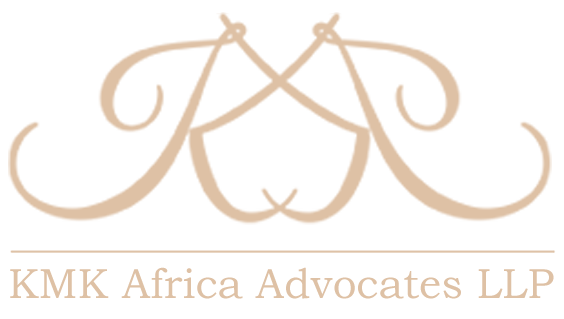Overview
The Income Tax (Charitable Organisations and Donations Exemption) Rules, 2024 ("the Rules"), recently promulgated regulations under Kenya's Income Tax Act, Cap. 470 ("the Act"), significantly revise Kenya's regulatory framework governing tax exemptions for charitable organisations and donations.
Below is an analysis of the key highlights of these Rules.
Key Objectives of the Rules
The Rules primarily serve two purposes:
- Determining Allowable Donations: They establish the criteria for determining the allowability of donations for tax purposes under section 15(2)(w) of the Act.
- Tax Exemption Framework: They lay down procedures for applying, granting, and retaining income tax exemptions for charitable organisations under paragraph 10 of Part 1 of the First Schedule to the Act.
Eligibility for Tax Exemption
Charitable organisations are exempt from income tax if they meet the following conditions:
- Charitable Purpose: The organisation must be established solely for charitable purposes such as relief of poverty, advancement of education, advancement of religion, or relief of public distress.
- Public Benefit: Activities must benefit the residents of Kenya and ensure no private benefit accrues to individuals.
- Compliance with Organisational and Operational Tests:
- The organisation's governing document must explicitly limit its objectives to charitable purposes.
- The organisation must operate exclusively for its stated charitable objectives without engaging in unlawful or unrelated business activities.
- Use of Income: The organisation's income must be expended in Kenya for charitable purposes or for the benefit of Kenyan residents.
- Prohibition of Private Benefits: The Rules prohibit any income from being distributed to private individuals or entities except as remuneration for services rendered.
Public Benefit Criteria
To qualify as benefiting the public, a charitable organisation's activities must:
- Be beneficial to an identifiable group or the public in general.
- Avoid unreasonable restrictions on who can benefit from its activities.
- Provide services that are needs-based and not influenced by irrelevant or unjustified criteria.
- Exclude private or family connections as criteria for beneficiaries.
Rules on Donations
Donations made by individuals or entities are subject to specific conditions to qualify for tax exemptions:
- Donations must be paid out of taxable income and cannot result in a taxable loss for the donor.
- Proof of donation is required, including evidence of receipt and confirmation of its use for approved charitable purposes.
- Donations must be irrevocable and confer no direct or indirect benefit to the donor.
Additionally, not more than 50% of donations in any income year may be allocated to unrelated entities.
Applications for Exemption
Charitable organisations seeking income tax exemption must apply to the Commissioner of Domestic Taxes at the Kenya Revenue Authority, accompanied by, among others:
- Certified copies of governing and registration documents.
- Audited financial statements for the preceding three years.
- A detailed impact report highlighting past and proposed activities and their benefits to Kenyan residents.
- Evidence of a valid tax compliance certificate.
New organisations must have operated for at least one year before applying for exemption, and renewal applications must be submitted at least six months before the current exemption expires.
Duration and Revocation of Exemptions
Exemption certificates are valid for five years and are subject to compliance with the Rules. The Commissioner has the authority to revoke an exemption if:
- The organisation violates its governing document or the Rules.
- The organisation's activities cease to align with its charitable objectives.
The organisation will receive notice of intention to revoke, including reasons for the revocation and a 30-day window to respond or address non-compliance.
Accumulation of Surplus Funds
Charitable organisations may accumulate surplus funds but must not retain more than 15% of their funds over three consecutive years without applying them to charitable purposes. Surplus funds from unrelated business activities are excluded from exemption unless:
- The business furthers its charitable purposes, and;
- It involves beneficiaries as workers or is incidental to its charitable objectives.
Compliance and Oversight Requirements
Exempt organisations must:
- Submit annual income tax returns in the prescribed format.
- Maintain transparency by providing required documents and information upon request.
- Avoid participation in tax avoidance schemes.
The Rules empower the Commissioner to:
- Demand detailed reports and documents from charitable organisations.
- Conduct audits to ensure adherence to prescribed standards.
Impact on Existing Charitable Organisations
Organisations already enjoying income tax exemptions must comply with the new Rules within 12 months from their effective date. The Rules revoke the previous Income Tax (Charitable Donations) Regulations, 2007, signalling a shift to a more stringent regulatory framework.
Key Takeaways for Stakeholders
Charitable Organisations
- Increased Reporting Burden: Organisations must maintain meticulous financial and operational records to demonstrate compliance.
- Transparency and Accountability: Clear articulation of charitable purposes and open beneficiary selection processes are mandatory.
Donors
- Increased Scrutiny on Tax-Deductible Donations: Donors must ensure proper documentation and adherence to the Rules to avoid tax penalties.
Tax Authorities
- Enhanced Monitoring Mechanisms: The Rules provide a robust framework for monitoring and regulating charitable organisations, ensuring transparency and reducing misuse of exemptions.
Call to Action
Charitable organisations are urged to:
- Review their governing documents to ensure alignment with organisational and operational tests.
- Update compliance processes for income tax reporting and documentation of donations.
- Seek professional advice to navigate income tax exemption application and renewal processes.
Donors should evaluate their donation strategies, ensuring alignment with the updated regulations so as to maximise tax benefits.
Conclusion
The Income Tax (Charitable Organisations and Donations Exemption) Rules, 2024, represent a significant regulatory shift, emphasizing accountability and charitable organisations' genuine delivery of public benefit. Stakeholders are encouraged to familiarise themselves with the provisions and seek professional guidance to ensure compliance.
We believe the Rules represent a positive step towards encouraging charitable activities and fostering a culture of philanthropy. By offering tax relief to charitable organisations and donors, these Rules aim to support the vital work of charities and promote a more compassionate and generous society.
Disclaimer: The above information is for general informational purposes only and does not constitute legal advice. Readers are encouraged to seek professional legal counsel for specific advice tailored to their individual circumstances. The author disclaims any liability for any actions taken or not taken based on the contents of this document.
Please do not hesitate to contact us for advice or inquiries on these Rules or any other related matter at: This email address is being protected from spambots. You need JavaScript enabled to view it. or This email address is being protected from spambots. You need JavaScript enabled to view it.





